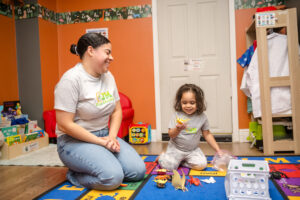
Where the Climate Crisis Meets Child Care: HBCC Provider Experiences Amid Natural Disasters
Severe climate and weather disasters in the U.S. have become more frequent. For home-based child care providers, these disasters not only affect the health and well-being of those impacted, but they also disrupt the livelihoods of HBCC providers and caregivers whose businesses are run from their homes.








